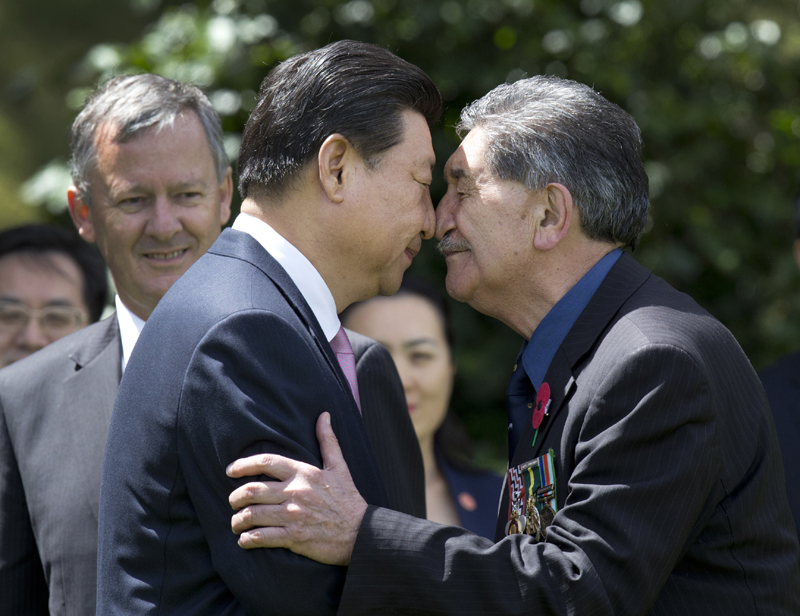 |
|
President Xi Jinping receives a traditional Maori greeting from Maori tribal elder Lewis Moeau during his state welcoming ceremony at Government House in Wellington, New Zealand, Nov 20, 2014. [Photo/Agencies] |
A powhiri is a traditional Maori welcome ceremony involving speeches, dancing, singing and finally the hongi. It is considered the most prestigious welcome for special visitors to New Zealand.
It begins with the ceremonial challenge called the wero, an ancient tradition used to determine whether visitors visit in peace or with hostile intent.
It is often performed by a warrior armed with a traditional weapon wielded in an intricate, fierce and intimidating series of martial-art-type movements.
The wero begins with the warrior advancing toward the visitors. He has a rakau tapu (dart) tucked in his belt as he advances, flourishing a taiaha (wooden fighting staff). The warrior places the dart at the feet of the visitor and once it has been picked up the whakawaha (clearing movement) is performed . He then slaps his right thigh to signal that the visiting party may enter the area.
On some occasions the powhiri begins before the karanga (call of welcome), at other times it begins after the karanga has started. The call of karanga is one of welcome to their collective ancestors and the aspects that bind everyone present.
The tangata whenua (people of the land) performs the haka powhiri, a chant and dance of welcome, during which the manuhiri (visitors) are symbolically drawn onto the marae (sacred courtyard). The chants often use the symbolism of hauling a waka or canoe onto the shore. The gestures of the body, tongue and eyes link with chanting to convey excitement and joy at the arrival of the guests of honor.
The ceremonial tapu or sacredness is removed when tangata whenua and manuhiri make physical contact with hongi or shaking hands. The hongi is a gentle pressing of noses, and signifies the mingling together of the sacred breath of life, and the two sides become one.